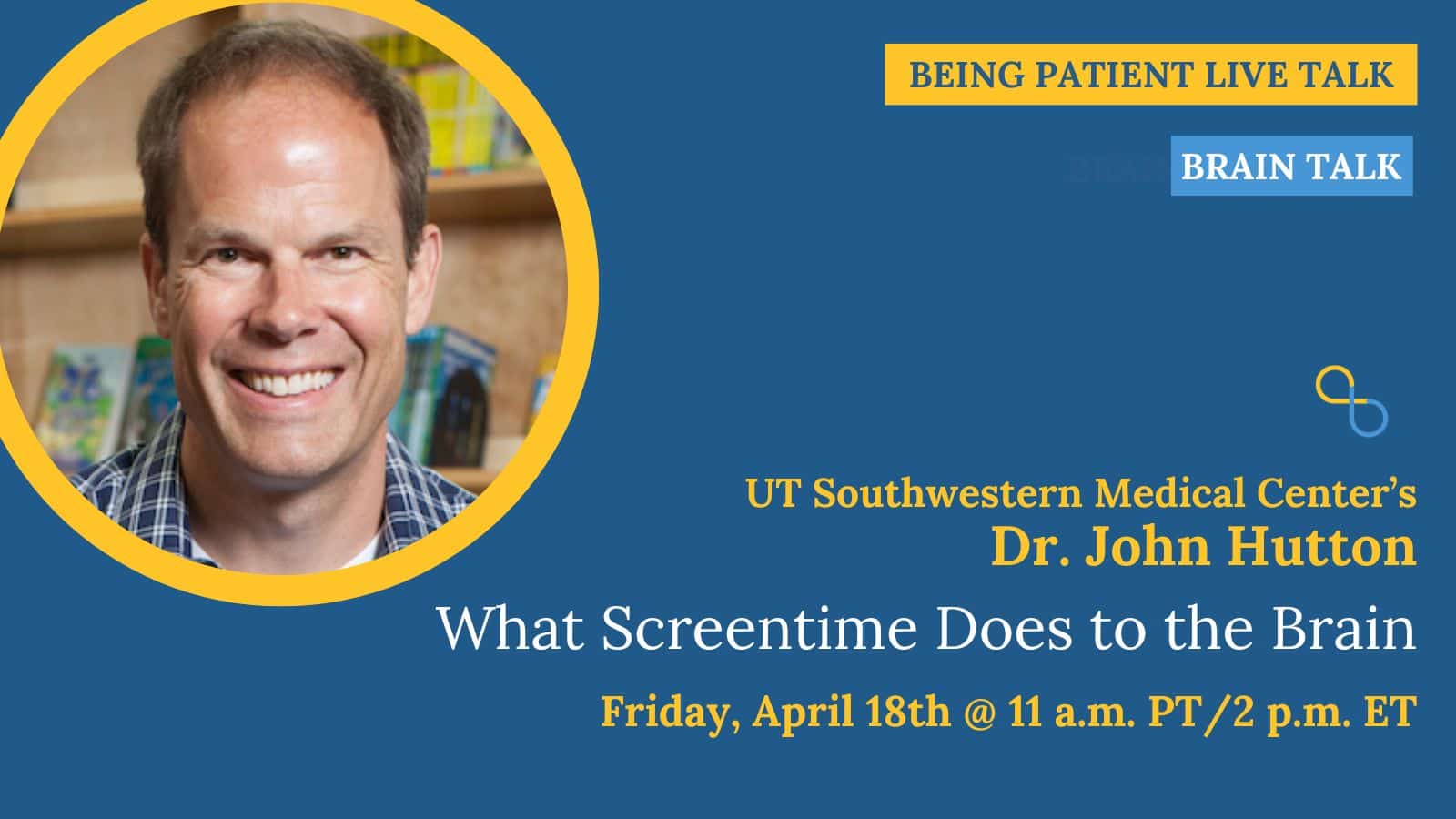
Dr. John Hutton: What Screentime Does to the Brain
April 18 @ 11:00 am - 12:00 pm PDT
Free
THIS LIVE TALK IS RESCHEDULED FOR: Friday, April 18th, at 11 a.m. PT/2 p.m. ET
From the smartphone you never put down to the laptop you work from, televisions to e-readers– screens are everywhere. But what are they doing to our brains, and how are they impacting brain development for the younger generation?
Join us for a Live Talk with Dr. John Hutton on Friday, April 18th, at 11 a.m. PT/2 p.m. ET, where he will discuss his research on screentime and brain development. The discussion will include what he’s currently learning about the impact of this technology on the brain and what people need to remember when using smart devices.
Hutton is an associate professor in the Division of General and Community Pediatrics at UT Southwestern Medical Center and a primary care pediatrician at Children’s Health, Dallas. With his team, Dr. Hutton published the first studies in the world using MRI to show the relationship between home reading and screen environments and brain structure and function in preschool-age children. He works collaboratively on reading and screen-limiting guidance for families, including children’s books and educational videos.
Hutton also spent 20 years leading Blue Manatee Children’s Bookstore, an award-winning independent bookstore donated in 2019 to create a non-profit, the Blue Manatee Literacy Project. In addition to over 50 scientific articles, he has published over 40 children’s books, many with health-promoting themes around dialogic reading and limiting screen time. He is “spokes- doctor” for the Read Aloud 15 MINUTES campaign on the National Medical Advisory Board of Reach Out and Read and co-author of the American Academy of Pediatrics Literacy Promotion Guidelines, released in 2024.
RSVP to learn more about the impact of screen time on the brain.
Dr. John Hutton: What Screentime Does to the Brain
Join us for a Live Talk with Dr. John Hutton on Friday, April 18th, at 11 a.m. PT/2 p.m. ET, where he will discuss his research on screentime and brain development. The discussion will include what he’s currently learning about the impact of this technology on the brain and what people need to remember when using smart devices.
My wife has dementia..And I’m upset there’s no cure or not much concerned about dementia but I’m about to change that..
Hi Shawn, thank you for sharing. We’re glad to have you as part of our community.
I’m concerned as I’m 88 and have lapses of memory and most of my family died of some form of dementia.